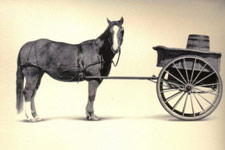Taking off my pack

This will sound familiar to many teachers. It’s the first morning of fall break, but my brain is still fighting to work on lesson plans, rework social studies units, and think of innovative ways to reward students for improving behavior. We’re good at those things, but honestly, what we’re not good at is turning off those thoughts when our brains, our bodies, and our souls need a break. I’m struggling now to, as the military saying goes, take off my pack.
When the buses arrived to take away our students on Friday afternoon, I was exhausted. It was the end of my first grading period as a middle-school teacher in an alternative ed program and I’ve been working harder than I did as a first-year teacher. Adding to the workload was the extra effort of helping steady vulnerable students facing nine days of chaos, hunger, and danger that comes with extended breaks from the safe, stable environment of school.
I recall how hard I worked for nearly every day during the summer break as I prepared to transition from teaching high school social studies classes to middle-school classes. It had to be done, however, I didn’t feel rested as I usually am after the “long” hiatus between mid-June and early August preceding a new school year.
Like most teachers I know, I love my job and enjoy the challenge of providing experiences that help students grow. Still, there’s a cost. Just as a student benefits from what I call a percolation period during which time information is organized in a student’s brain as connections form after exposure to new concepts, teachers need time away from hard mental work of crafting lessons.
I liken what I’m now experiencing to the challenge faced by anyone meditating – or fighting insomnia. How do you turn off those thoughts of the best way to solve not only your own problems but those of others? At first, it’s uncomfortable to consciously not harness your mind to brainstorming the means to an elusive end. There’s even some, (irrational), guilt I feel in the morning when I’m not honing a new idea for incorporating a promising learning strategy.
Age and experience serve as a rare comfort in this case. I know and understand the benefits – the necessity – of taking off my pack. My subconscious mind will still work on those problems, but the intentional rest I’m taking will provide, hopefully, the fuel for future epiphanies.
The balance of these next nine days will see me camping and enjoying the good company of close friends and aging parents. I’ll explore a few books, museums, and a movie or two, and while all of these may be tied to my content are, I plan to fight that urge to pick up my pack, to saddle up, and return to my teacher mode – until the night before school resumes.




 For the past six years, no matter how trying the day was, I consoled myself with one thought: At least I don’t teach middle school.
For the past six years, no matter how trying the day was, I consoled myself with one thought: At least I don’t teach middle school.